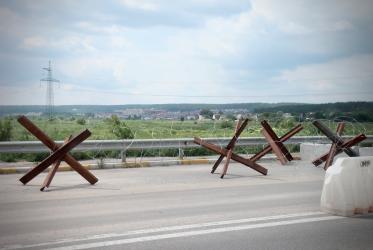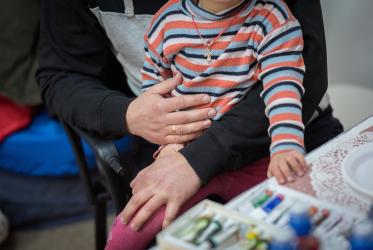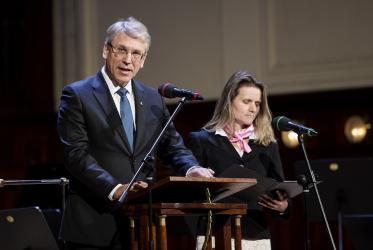Displaying 1 - 13 of 13
07 February 2024
Ukraine: Responding to humanitarian need
08 September 2022
WCC general secretary visits churches in Czech Republic
17 December 2018
Symposium focuses on religion, violence, extremism
04 February 2016
WCC/UN conference calls for coordinated action on refugee crisis
20 January 2016
WCC urges responsibility for and support to the refugees in Europe
04 September 2015
WCC Executive Committee speaks out on migrant crises
12 June 2015












